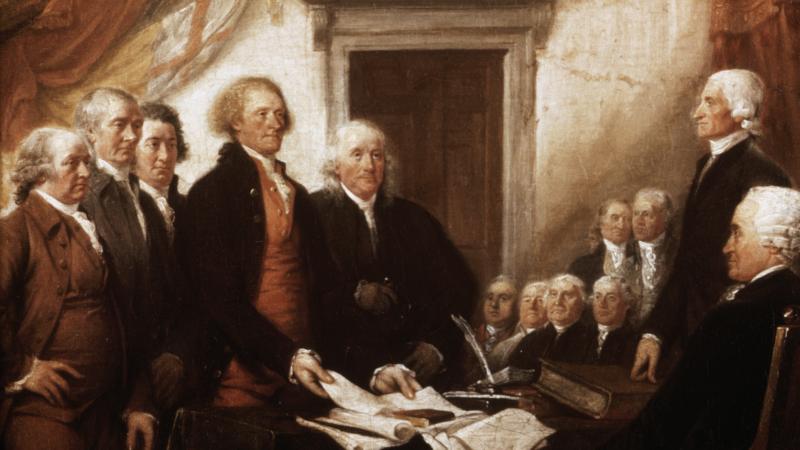UK museum says Roman emperor was trans, will be referred to as 'she'
Romans "used accusations of sexual behaviour 'as a woman' as one of the worst insults against men," Cambridge classics professor Andrew Wallace-Hadrill said.
A U.K. museum says that Roman emperor Elagabalus was a transgender woman and it will refer to the third-century ruler as "she."
The North Hertfordshire Museum said it wants to be "sensitive" to the reported preferred pronouns of Elagabalus, who ruled from A.D. 218 to A.D. 222 before being assassinated at the age of 18, according to The Telegraph.
The female pronouns are based on classical texts claiming that Elagabalus asked to be referred to as a "lady," but some historians believe these accounts may have only been a Roman attempt to slander the emperor.
The council-run museum, located in Hitchin, less than 40 miles north of London, owns a silver denarius minted during Elagabalus' reign. The museum has featured the coin in LGBT-theamed displays.
A 2021 blog entry on the museum's website refers to Elagabalus with the pronoun "their." Now, displays with the coin in the museum will refer to Elagabalus as she.
"Elagabalus most definitely preferred the she pronoun, and as such this is something we reflect when discussing her in contemporary times," Keith Hoskins, executive member for arts at the liberal-run North Herts Council, told the U.K. outlet.
"We try to be sensitive to identifying pronouns for people in the past, as we are for people in the present. It is only polite and respectful. We know that Elagabalus identified as a woman and was explicit about which pronouns to use, which shows that pronouns are not a new thing," Hoskins also said.
The pronouns are based on a report from Roman chronicler Cassius Dio, who said that Elagabalus was called "wife, mistress and queen," and that the emperor asked to have female genitalia made for him and told one lover, "Call me not Lord, for I am a Lady."
However, Cassius Dio served Severus Alexander, who became emperor after Elagabalus' assassination, and the accounts appear to use the alleged behavior to justify his assassination.
"The Romans didn’t have our idea of 'trans' as a category, but they used accusations of sexual behaviour 'as a woman' as one of the worst insults against men," Cambridge classics professor Andrew Wallace-Hadrill said.
Because Elagabalus was Syrian and not Roman, "there’s racial prejudice going on there too," Wallace-Hadrill also said.















